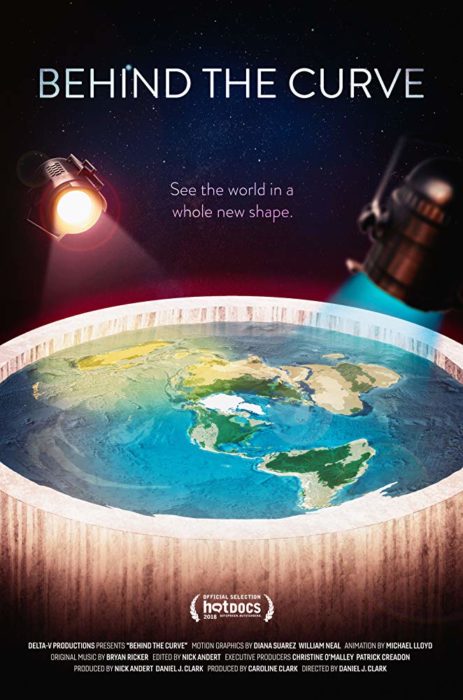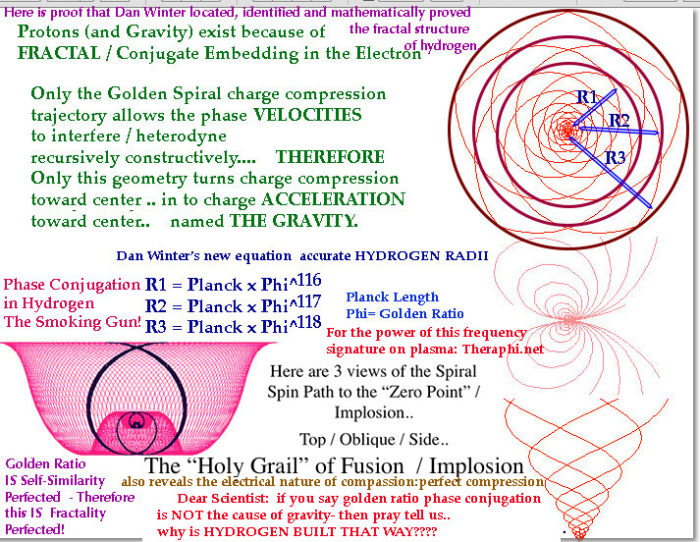Jul
15
2019
 A paper is making the rounds on climate denial sites that claims to debunk human-caused climate change in a single stroke. Predictably, the paper does nothing of the sort, but it does raise a complex issue regarding climate change that is worth reviewing. But first let’s get to the paper itself.
A paper is making the rounds on climate denial sites that claims to debunk human-caused climate change in a single stroke. Predictably, the paper does nothing of the sort, but it does raise a complex issue regarding climate change that is worth reviewing. But first let’s get to the paper itself.
The paper, by J. Kauppinen and P. Malmi, is a pre-publication paper on the Arxiv. This means it is not peer-reviewed. Their central claim, from the abstract:
In this paper we will prove that GCM-models used in IPCC report AR5 fail to calculate the influences of the low cloud cover changes on the global temperature.
Right in the first sentence is a huge red flag – claiming to be able to “prove” that the IPCC report is false. That’s a bold claim, and suggests a less than rigorous intellectual approach. They also claim to rebuke a rather robust conclusion built on many lines of evidence with a single line of evidence – the single stroke approach. This is also a huge red flag.
The claim is built around one major line of reasoning, that if you compare low cloud cover with changes in global temperatures, you see a strong correlation. In fact, the authors argue, you can explain most of global warming as resulting from a decrease in low cloud cover, leaving almost nothing left for anthropogenic forcing. There is a great deal wrong with this claim. The site ClimateFeedback has helpfully curated much of the response from climate scientists, who eviscerate the Kauppinen paper, and I will give you a summary of their summary.
Continue Reading »
Apr
23
2019
 I finally watched Behind The Curve, a documentary about the Flat Earth movement. It is a powerful documentary which provides important insights into this fascinating phenomenon. If you haven’t seen it yet, I highly recommend it.
I finally watched Behind The Curve, a documentary about the Flat Earth movement. It is a powerful documentary which provides important insights into this fascinating phenomenon. If you haven’t seen it yet, I highly recommend it.
For me the most interesting moments were those when the Flat Earth believers the film focuses on show a flash of insight. They never quite get there, but they have all the pieces in front of them, they see them, they see their significance, but can’t quite make the final emotional connection.
The other aspects that I found most interesting were those that provided generic insight into how ideological movements work. There is some basic and universal human psychology going on, and in some ways it’s a mirror to any group of humans, including skeptics.
I also was especially interested in the question, directly addressed by the film, of how best to approach Flat Earthers and the entire movement. What is our responsibility here as science communicators, and what is our best strategy?
Some reviews have focused on those moments when Flat Earthers did experiments to test their theory, and were wrong. These are, of course, delicious. For example, one group purchased a ring laser gyroscope, a $20k device that can very sensitively measure movement. They say straight up, and correctly, that if the earth is a globe and it rotates once every 24 hours, then there should be a 15 degree drift in the gyroscope every hour. That is their experimental hypothesis.
So – they set up the device and…it measures a 15 degree drift every hour. QED – the Earth is a rotating globe.
Continue Reading »
Mar
19
2019
 One of the core concepts in my book, The Skeptics’ Guide to the Universe, is that humans are inherently good at certain cognitive tasks, and inherently bad at others. Further, our cognitive processes are biased in many ways and we tend to commit common errors in logic and mental short-cuts that are not strictly valid. The human brain appears to be optimized by evolution to quickly and efficiently do the things we need to do to stay alive and procreate, and this has a higher priority than having an accurate perception and understanding of reality. (Having an accurate perception of reality has some priority, just not as much as efficiency, internal consistency, and pragmatism, apparently.)
One of the core concepts in my book, The Skeptics’ Guide to the Universe, is that humans are inherently good at certain cognitive tasks, and inherently bad at others. Further, our cognitive processes are biased in many ways and we tend to commit common errors in logic and mental short-cuts that are not strictly valid. The human brain appears to be optimized by evolution to quickly and efficiently do the things we need to do to stay alive and procreate, and this has a higher priority than having an accurate perception and understanding of reality. (Having an accurate perception of reality has some priority, just not as much as efficiency, internal consistency, and pragmatism, apparently.)
One of the things humans are not generally good at is statistics, especially when dealing with large numbers. We have a “math module” in our brains that is pretty good at certain things, such as dealing with small numbers, making comparisons, and doing simple operations. However, for most people we quickly get out of our intuitive comfort zone when dealing with large numbers or complex operations. There is, of course, also a lot of variation here.
We give several examples to illustrate how people generally have poor intuition for statistics and certain kinds of math, and how our understanding of math runs up against our cognitive biases and flawed heuristics. These common examples include the fact that we have a poor intuitive grasp of randomness.
Probability also seems to be a challenge. How many people would you have to have in a room before having a >50% chance that two of them share the same birthday (not year, just day)? The answer is a lot less than most people guess – it’s just 23. We tend to underestimate how probabilities multiply when making multiple comparisons. This is why we are inappropriately amazed at coincidences. They are not as amazing as we naively think. The probability of someone winning the lottery twice is also a lot higher than you might think.
Continue Reading »
Mar
11
2019
 These are always amusing, but I do admit to a little bit of guilt. My concern is that the individuals involved may be diagnosable, and is it really fair to publicly criticize their “work.” But then I realize I cannot diagnose people from afar, and they placed their work in the public arena, so it’s fair game.
These are always amusing, but I do admit to a little bit of guilt. My concern is that the individuals involved may be diagnosable, and is it really fair to publicly criticize their “work.” But then I realize I cannot diagnose people from afar, and they placed their work in the public arena, so it’s fair game.
What I am talking about are extreme cranks, and a particular flavor of cranks that believe they have developed what is derogatorily called a “theory of everything.” These are theories that attempt to explain the ultimate nature of reality – of space, time, fundamental forces, and even the meaning of life – but are not truly scientific. Such individuals have always existed in some form, and the internet has given them a new venue to rapidly spread their bizarre claims.
The now iconic example of the extreme theory-of-everything internet crank is “the time cube guy.” He became famous (as an internet meme) for his endlessly scrolling webpage filled with incoherent technobabble, peculiar fonts and formatting, and boasts about how much smarter he was than famous scientists. For many this was their introduction into the world of crankery. Many scientists were already very familiar, however, being on the receiving end of occasional massive tomes of self-published nonsense, eager for their attention.
A new crank theory of everything is making the rounds, at least within skeptical corners of the internet – Dan Winter, who is pushing his theory – Phase Conjugate Fractality: HOW Gravity is CAUSED. (formatting in the original)
Continue Reading »
Jan
18
2019
 The question at the core of science communication and the skeptical movement is – how do we change opinions about science-related topics? That is the ultimate goal, not just to give information but to inform people, to change the way they think about things, to build information into a useful narrative that helps people understand the world and make optimal (or at least informed) decisions.
The question at the core of science communication and the skeptical movement is – how do we change opinions about science-related topics? That is the ultimate goal, not just to give information but to inform people, to change the way they think about things, to build information into a useful narrative that helps people understand the world and make optimal (or at least informed) decisions.
I have been using the GMO (genetically modified food) issue as an example, primarily because the research I am discussing is using it as a topic of study. But also – GMO opposition is the topic about which there is the greatest disparity between public and scientific opinion. A new study also looks at attitudes toward GMOs, specifically, with the question of – is a convert from GMO opponent to supporter more persuasive than straightforward GMO support?
The study uses clips from a talk by Mark Lynas, an environmentalist who converted from GMO opponent to supporter. They found:
The respondents each were shown one of three video clips: 1) Lynas explaining the benefits of GM crops; 2) Lynas discussing his prior beliefs and changing his mind about GM crops; and 3) Lynas explaining why his beliefs changed, including the realization that the anti-GM movement he helped to lead was a form of anti-science environmentalism.
The researchers found that both forms of the conversion message (2 and 3) were more influential than the simple advocacy message. There was no difference in impact between the basic conversion message and the more elaborate one.
This makes sense – prior research shows that it is more effective to give someone a replacement explanatory narrative than just to tell them that they are wrong. However, it is very difficult to say how generalizable this effect is.
Continue Reading »
Jan
03
2019
 Magicians play a significant role in the skeptical movement. They have, as Liam Neeson famously said, a particular set of skills. They are very adept at deception, using techniques that have been honed through trial and error over centuries. It is a great example of cultural knowledge. Having the ability to deceive others, purely for entertainment and with informed consent, also makes them adept at detecting the use of the same techniques for nefarious purposes. This, essentially, has been James Randi’s entire career.
Magicians play a significant role in the skeptical movement. They have, as Liam Neeson famously said, a particular set of skills. They are very adept at deception, using techniques that have been honed through trial and error over centuries. It is a great example of cultural knowledge. Having the ability to deceive others, purely for entertainment and with informed consent, also makes them adept at detecting the use of the same techniques for nefarious purposes. This, essentially, has been James Randi’s entire career.
But at the same time some stage magicians make skeptics uncomfortable by not being entirely upfront with their audience. Now, I am not suggesting that all magicians tell their audience how the tricks are done, and I completely understand the need to create a mystique as part of the performance. However, I have seen skilled magicians (like Randi or Banachek) perform amazing tricks with complete candor about the nature of those tricks, without diminishing the entertainment value.
Magicians typically create a narrative by which they “explain” their tricks to the audience. A magician, for example, could say, “I am using sleight of hand.” Or they could say (or strongly imply), “I have true psychic ability.” The Amazing Kreskin falls into this latter category. There are also those like Uri Geller who (sort of) pretend they are not doing magic at all, but have special powers.
In the gray zone are those like Derren Brown. Their narrative is not that they are psychic but that they are using psychological manipulation on their audience – reading microexpressions, influencing their decision-making, or reading body-language. This narrative is as much BS as the psychic one, used as part of the magic experience and for misdirection. You can read and influence people to some degree, but these techniques are not reliable enough to support a performance. Typically mentalists use standard sleight of hand and then pretend to use psychological techniques.
Continue Reading »
Dec
18
2018
 I don’t usually do lists, but I do find it interesting to look back over the past year and review major events and trends. It’s good for the memory, and the exercise always reminds me of how terrible memory is. I often realize that I forgot about major events, and also have a poor sense of how far in the past certain events occurred. (Was that this year or last year?)
I don’t usually do lists, but I do find it interesting to look back over the past year and review major events and trends. It’s good for the memory, and the exercise always reminds me of how terrible memory is. I often realize that I forgot about major events, and also have a poor sense of how far in the past certain events occurred. (Was that this year or last year?)
So here are the pseudosciences from 2018 that I think deserve to be remembered. I am going to list them in no particular order, and just keep adding them until I run out of time.
Climate Change Denial
It does seem that 2018 may have been a bit of a turning point for the recognition that climate change is real, imminent, and deserving of far more attention and priority than we are giving it. There were multiple reports all agreeing that essentially the problem is worse than we thought, we have less time than we thought, and we better get cracking. The IPCC, for example, pointed out that even if we keep warming to 1.5C above pre-industrial levels, an ambitious and probably not achievable goal, bad things will still happen, just not as bad if warming goes beyond that point. A US government report echoes this, adding that further warming will be economically damaging and it is cost-effective to prevent it rather than deal with the consequences.
Several surveys also show that people are increasing concerned about climate change. Even some conservatives admit they were wrong on climate change. Even the writers of South Park admitted their prior error in an apology series of episodes to Al Gore.
Therefore, perhaps the worse pseudoscientists of 2018 is anyone still denying that climate change is a real problem that needs to be dealt with. The denialist strategies have not changed – no, the Earth is not warming, well if it is it’s not due to human causes, well even if we are causing it the results won’t be bad, well even if they will be bad there is nothing we can do about it anyway, and whatabout China? Like all pseudosciences they start with the desired conclusion – that we don’t need to do anything about it, just keep burning fossil fuels, and then they reverse engineer a justification for that conclusion.
Continue Reading »
Dec
04
2018
 Many people are complaining that CNN, in reporting on the recent E. coli outbreak on romaine lettuce, had The Food Babe (Vani Hari) on as a food “expert.” This, of course, is a complete journalistic failure on the part of CNN. The Food Babe is a famously scientifically illiterate alarmist whose career is based on peddling misinformation. My favorite example is when she completely misunderstood the nature of pressure in airline cabins, and complained that the air was tainted with up to 50% nitrogen.
Many people are complaining that CNN, in reporting on the recent E. coli outbreak on romaine lettuce, had The Food Babe (Vani Hari) on as a food “expert.” This, of course, is a complete journalistic failure on the part of CNN. The Food Babe is a famously scientifically illiterate alarmist whose career is based on peddling misinformation. My favorite example is when she completely misunderstood the nature of pressure in airline cabins, and complained that the air was tainted with up to 50% nitrogen.
As important as this complete scientific failure, was her response. She did not transparently correct the misinformation and apologize. She simply deleted the post.
Hari has come under extensive criticism for spouting her nonsense and fearmongering. She is perhaps most famous for her “yoga mat” stunt, completely misunderstanding the fact that chemicals can be used for a variety of reasons, and that does not make them dangerous.
Her general response to criticism is to (in addition to hiding) go on the attack. She does not appear to be an honest broker of information, but rather a self-promoter who will attack her critics. She also likes to ban critics from her own page. So when the internet complained to CNN that the Food Babe was not an appropriate person to have on their program to be presented as an expert, Hari did what she does – she went on the attack.
Her tactic this time is to blame the whole affair on “astroturfing.” This is a real phenomenon in which an industry, company, cult, or ideological group will create the impression of a grassroots campaign using front organizations and paid agents. However, this isn’t the whole story.
Continue Reading »
Nov
27
2018
 Last week I wrote about yet another claim for a possible location for Atlantis. This sparked some lively discussion, indicative of the fact that there is something alluring and iconic about the idea of Atlantis. I also think having a cool name is critical for such appeal (and not a small part of why Nostradamus, for example, is so iconic).
Last week I wrote about yet another claim for a possible location for Atlantis. This sparked some lively discussion, indicative of the fact that there is something alluring and iconic about the idea of Atlantis. I also think having a cool name is critical for such appeal (and not a small part of why Nostradamus, for example, is so iconic).
Long story short – there is no evidence that Atlantis existed, that Plato intended his writings to be an actual claim that Atlantis was real, and there is no evidence that the new supposed location, the Richat structure in Africa, is Atlantis or any ancient city.
In the comments, defenders of Atlantis made a claim, one that I have heard frequently before, that caught my interest.
One commenter wrote:
Atlantis a myth…?
Perhaps the story, but is the story based on something?
Let’s remember Troy was a myth until rediscovered in 1870.
Another:
They laughed at Heinrich Schliemann, but he found Troy and started, for the most part, the science of archaeology.
and:
back in 19th centrury(sic): The consensus of actual scholarship is that Troy is a myth.
Thank you Heinrich Schliemann for not caring about consensus.
The initial response by me and others was – so what? The logic here is not valid. Just because one city written about in ancient texts turned out to be real, that doesn’t mean they all are, or that Atlantis specifically is. Further, the analogy is not a good one.
Continue Reading »
Nov
19
2018
 A video is making the rounds claiming “proof” that Atlantis existed in norther Africa. This video is by Jimmy from Bright Insight and it is an excellent example of crank pseudoscience. Jimmy has made himself into a social media brand, with lots of conspiracy and pseudohistory nonsense to sell, but let’s focus on this one video for now.
A video is making the rounds claiming “proof” that Atlantis existed in norther Africa. This video is by Jimmy from Bright Insight and it is an excellent example of crank pseudoscience. Jimmy has made himself into a social media brand, with lots of conspiracy and pseudohistory nonsense to sell, but let’s focus on this one video for now.
The video follows a familiar format – gather together lots of circumstantial evidence, exaggerate its significance and specificity, ignore anything that doesn’t fit, ignore all genuine scholarship, and create the impression that you’re onto something. Essentially – blow a lot of smoke to convince the naive that there’s a fire.
His argument is essentially that the Richat structure, or the Eye of the Sahara, fits Plato’s description of Atlantis so well, it essentially amounts to proof.
First, let me start out by stating that the consensus of actual scholarship is that Atlantis is a myth. Plato never intended his description of Atlantis to be an actual claim that the city existed. He used it as an obvious rhetorical device – the evil empire that was vanquished by the morally pure Athenians, and wiped off the Earth by the wrath of the gods. The notion that knowledge of a nine thousand year old city (at his time) somehow came only to Plato, of all people, is itself a huge stretch. Further, no one at the time reacted to his description of Atlantis as if it were a real claim. All his contemporaries understood it to be a device, not a claim. Jimmy does not even address this fatal flaw in his argument.
Continue Reading »
 A paper is making the rounds on climate denial sites that claims to debunk human-caused climate change in a single stroke. Predictably, the paper does nothing of the sort, but it does raise a complex issue regarding climate change that is worth reviewing. But first let’s get to the paper itself.
A paper is making the rounds on climate denial sites that claims to debunk human-caused climate change in a single stroke. Predictably, the paper does nothing of the sort, but it does raise a complex issue regarding climate change that is worth reviewing. But first let’s get to the paper itself.
 I finally watched
I finally watched  One of the core concepts in my book,
One of the core concepts in my book,  These are always amusing, but I do admit to a little bit of guilt. My concern is that the individuals involved may be diagnosable, and is it really fair to publicly criticize their “work.” But then I realize I cannot diagnose people from afar, and they placed their work in the public arena, so it’s fair game.
These are always amusing, but I do admit to a little bit of guilt. My concern is that the individuals involved may be diagnosable, and is it really fair to publicly criticize their “work.” But then I realize I cannot diagnose people from afar, and they placed their work in the public arena, so it’s fair game. The question at the core of science communication and the skeptical movement is – how do we change opinions about science-related topics? That is the ultimate goal, not just to give information but to inform people, to change the way they think about things, to build information into a useful narrative that helps people understand the world and make optimal (or at least informed) decisions.
The question at the core of science communication and the skeptical movement is – how do we change opinions about science-related topics? That is the ultimate goal, not just to give information but to inform people, to change the way they think about things, to build information into a useful narrative that helps people understand the world and make optimal (or at least informed) decisions. Magicians play a significant role in the skeptical movement. They have, as Liam Neeson famously said, a particular set of skills. They are very adept at deception, using techniques that have been honed through trial and error over centuries. It is a great example of cultural knowledge. Having the ability to deceive others, purely for entertainment and with informed consent, also makes them adept at detecting the use of the same techniques for nefarious purposes. This, essentially, has been James Randi’s entire career.
Magicians play a significant role in the skeptical movement. They have, as Liam Neeson famously said, a particular set of skills. They are very adept at deception, using techniques that have been honed through trial and error over centuries. It is a great example of cultural knowledge. Having the ability to deceive others, purely for entertainment and with informed consent, also makes them adept at detecting the use of the same techniques for nefarious purposes. This, essentially, has been James Randi’s entire career. I don’t usually do lists, but I do find it interesting to look back over the past year and review major events and trends. It’s good for the memory, and the exercise always reminds me of how terrible memory is. I often realize that I forgot about major events, and also have a poor sense of how far in the past certain events occurred. (Was that this year or last year?)
I don’t usually do lists, but I do find it interesting to look back over the past year and review major events and trends. It’s good for the memory, and the exercise always reminds me of how terrible memory is. I often realize that I forgot about major events, and also have a poor sense of how far in the past certain events occurred. (Was that this year or last year?) Many
Many Last week I wrote about yet another claim for a
Last week I wrote about yet another claim for a  A video is making the rounds claiming “proof” that Atlantis existed in norther Africa.
A video is making the rounds claiming “proof” that Atlantis existed in norther Africa. 




